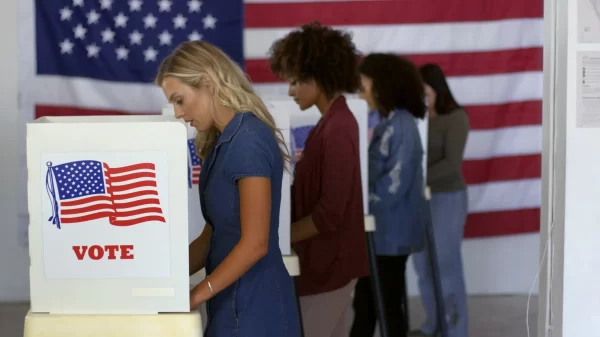By Bill Britt
Alabama Political Reporter
MONTGOMERY—They are everywhere, especially in poorer neighborhood, quick money, easy loans, title pawn and payday leaners.
According to a study by the Pew Charitable Trust, twelve million Americans take out payday loans each year.
Nationally, around 20,000 storefronts and hundreds of websites haul-in approximately $7.4 billion annually.
Just this week The Alabama Federation of Republican Women, issued a statement asking for the Alabama State Legislature to “supports a review of the outrageous practice of exorbitant interest rates by lenders of automobile title and payday loans.”
Shay Farley, legal director for Alabama Appleseed said, “Seventeen states have acted to curb predatory lending but capping interested rates at 36 percent or less. It is time for Alabama to do the same.”
Farley who is a passionate advocate for payday loan reform is working to create a coalition that will educate the public about the dangers of borrowing from payday lenders, also said, “The legislature should follow the example of the US Congress when it capped interest rates for loans made to our military back in 2006.
The Republican women cited some examples of the pitfalls of payday lending, “Interest on payday loans can total 465% a year, and auto title lenders are allowed to charge up to 300 percent APR.”
They also point out that “other short-term loans are capped at an annualized rate of 36 percent under the Small Loan Act.”
Typically these types of loans are not for unusual expenses or to cover emergence spending but are for everyday living cost. However, the average borrower ends up, “indebted for five months and pays $520 in finance charge,” according to Pew.
In actuality, 69 percent of those who use such loans, “used it to cover a recurring expense, such as utilities, credit card bills, rent or mortgage payments, or food.” Only 16 percent are used for unexpected expense, such as a car repair or emergency medical expense.
The 2012 Pew study shows that “On average, a borrower takes out eight loans of $375 each per year and spends $520 on interest.”
There are five groups who most frequently use payday loans or other such high-interest, so-called short-term loans. They are: “those without a four-year college degree; home renters; African Americans; those earning below $40,000 annually; and those who are separated or divorced.”
The Republican Women point out that, “Alabama leads the nation in the payday and title pawn loan markets.”
According to ARISE, Citizen’s Policy Project, based in Alabama, “Alabama law lets payday lenders charge an annualized percentage rate (APR) of 456 percent.
Compared to interest charged on other types of consumer loans, 456 percent is predatory and often insurmountable.”
According to an ARISE study, because of, “government loopholes, payday lenders are free to charge eye-popping rates.” The policy group says that, “The Legislature should terminate this favor to special interests and let the marketplace fairly select the winners and losers in the lending industry.”
A 2010 report complied by the Center for Responsible Lending showed that Alabama had approximately 1,163 payday lending stores, with a $3,643 annual payday loans per store. The total payday volume in Alabama was $1.5 billion. The organization’s research shows that the majority of payday lender money comes from what is referred to in the industry as, “Churn.”
Churn occurs because payday loan is due in full on the next individual’s next payday. The study shows that the fee for the loan is nearly $60 for an average $350 loan. “This virtually guarantees that low-income customers will experience a shortfall before their next paycheck and need to come right back in the store to take a new loan,” according to the study by the Center for Responsible Lending.
In Alabama, the average total payday loan volume from churning is $1.1 billion dollars annually.
The Alabama Federation of Republican Women in there statement are urging the State Legislature to “erase this blot on our image.”
In the 2012 Legislative session, bills were introduced to regulated automobile title loans, payday lenders and pawn shops. But those will still did not address fully the high interests associated with such loans. While it was reported that these bills had bipartisan support, they never made it to the floor of either chamber.
Payday lenders have learned another secret to making money beyond churning and that is to flood the StateHouse with campaign cash.
The Republican Women close their statement by saying, “We hope Alabama will follow the examples of other states that have recognized the consequences of the commercial practice of usury, which victimizes the poor, veterans, and their families, and find an equitable solution.”
Many states have defined usury laws in their Constitutions and dictate caps on lending, including Texas, California and Maryland. Seventeen states including Arkansas, Georgia, North Carolina, and Kentucky have banned or do not enable payday lending.






















































